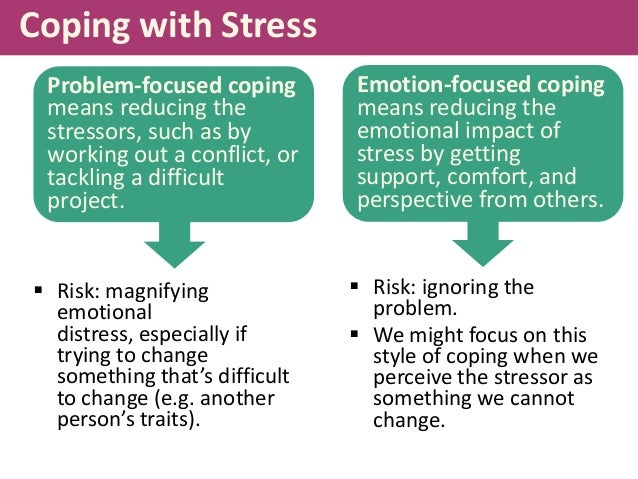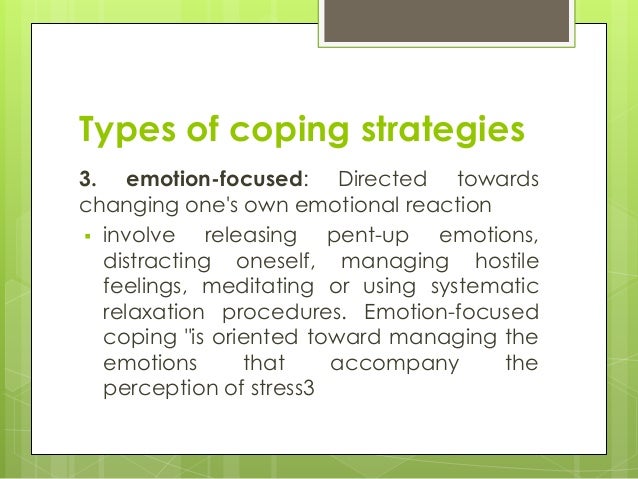
Greater personal control is also associated with lower reactivity to stressors in daily life. Extensive research has demonstrated that perceptions of personal control are associated with a variety of favorable outcomes, such as better physical and mental health and greater psychological well-being (Diehl & Hay, 2010). Perceived control is our beliefs about our personal capacity to exert influence over and shape outcomes, and it has major implications for our health and happiness (Infurna & Gerstorf, 2014).

As cogently described in his statement, our reaction to potential stressors depends to a large extent on how much control we feel we have over such things. Albert Bandura (1997) stated that “the intensity and chronicity of human stress is governed largely by perceived control over the demands of one’s life” (p. The desire and ability to predict events, make decisions, and affect outcomes-that is, to enact control in our lives-is a basic tenet of human behavior (Everly & Lating, 2002). A person who cannot stand her job can quit and look for work elsewhere a middle-aged divorcee can find another potential partner the freshman who fails an exam can study harder next time, and a breast lump does not necessarily mean that one is fated to die of breast cancer. The most helpful coping response is emotion-focused coping aimed at minimizing the pain of the grieving period.įortunately, most stressors we encounter can be modified and are, to varying degrees, controllable. You are simply powerless to change the situation as there is nothing you can do to bring this person back. For example, the stress you experience when a loved one dies can be overwhelming.

Clearly, emotion-focused coping is more effective in dealing with uncontrollable stressors. While many stressors elicit both kinds of coping strategies, problem-focused coping is more likely to occur when encountering stressors we perceive as controllable, while emotion-focused coping is more likely to predominate when faced with stressors that we believe we are powerless to change (Folkman & Lazarus, 1980). In a certain sense, emotion-focused coping can be thought of as treating the symptoms rather than the actual cause. If Bradford adopted an emotion-focused approach to managing his midterm deficiency stress, he might watch a comedy movie, play video games, or spend hours on Twitter to take his mind off the situation. For example, a person sentenced to federal prison who thinks, “This will give me a great chance to network with others,” is using reappraisal. In some cases, emotion-focused coping strategies involve reappraisal, whereby the stressor is construed differently (and somewhat self-deceptively) without changing its objective level of threat (Lazarus & Folkman, 1984). These efforts may include avoiding, minimizing, or distancing oneself from the problem, or positive comparisons with others (“I’m not as bad off as she is”), or seeking something positive in a negative event (“Now that I’ve been fired, I can sleep in for a few days”). A problem-focused approach to managing stress means we actively try to do things to address the problem.Įmotion-focused coping, in contrast, consists of efforts to change or reduce the negative emotions associated with stress. He might contact his professor to discuss what must be done to raise his grade, he might also decide to set aside two hours daily to study statistics assignments, and he may seek tutoring assistance. If Bradford adopts a problem-focused coping approach to managing his stress, he would be proactive in trying to alleviate the source of the stress.

As an example, suppose Bradford receives a midterm notice that he is failing statistics class. Problem-focused coping strategies are similar to strategies used in everyday problem-solving: they typically involve identifying the problem, considering possible solutions, weighing the costs and benefits of these solutions, and then selecting an alternative (Lazarus & Folkman, 1984). In problem-focused coping, one attempts to manage or alter the problem that is causing one to experience stress (i.e., the stressor). Lazarus and Folkman (1984) distinguished two fundamental kinds of coping: problem-focused coping and emotion-focused coping.


 0 kommentar(er)
0 kommentar(er)
